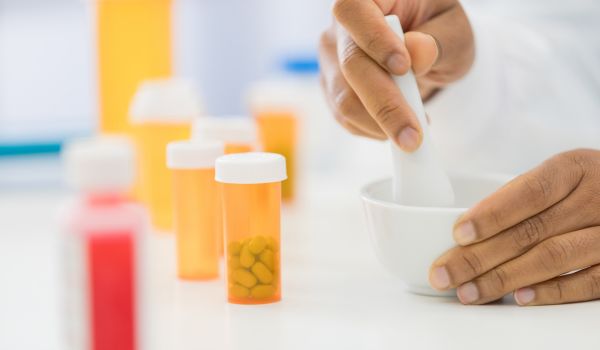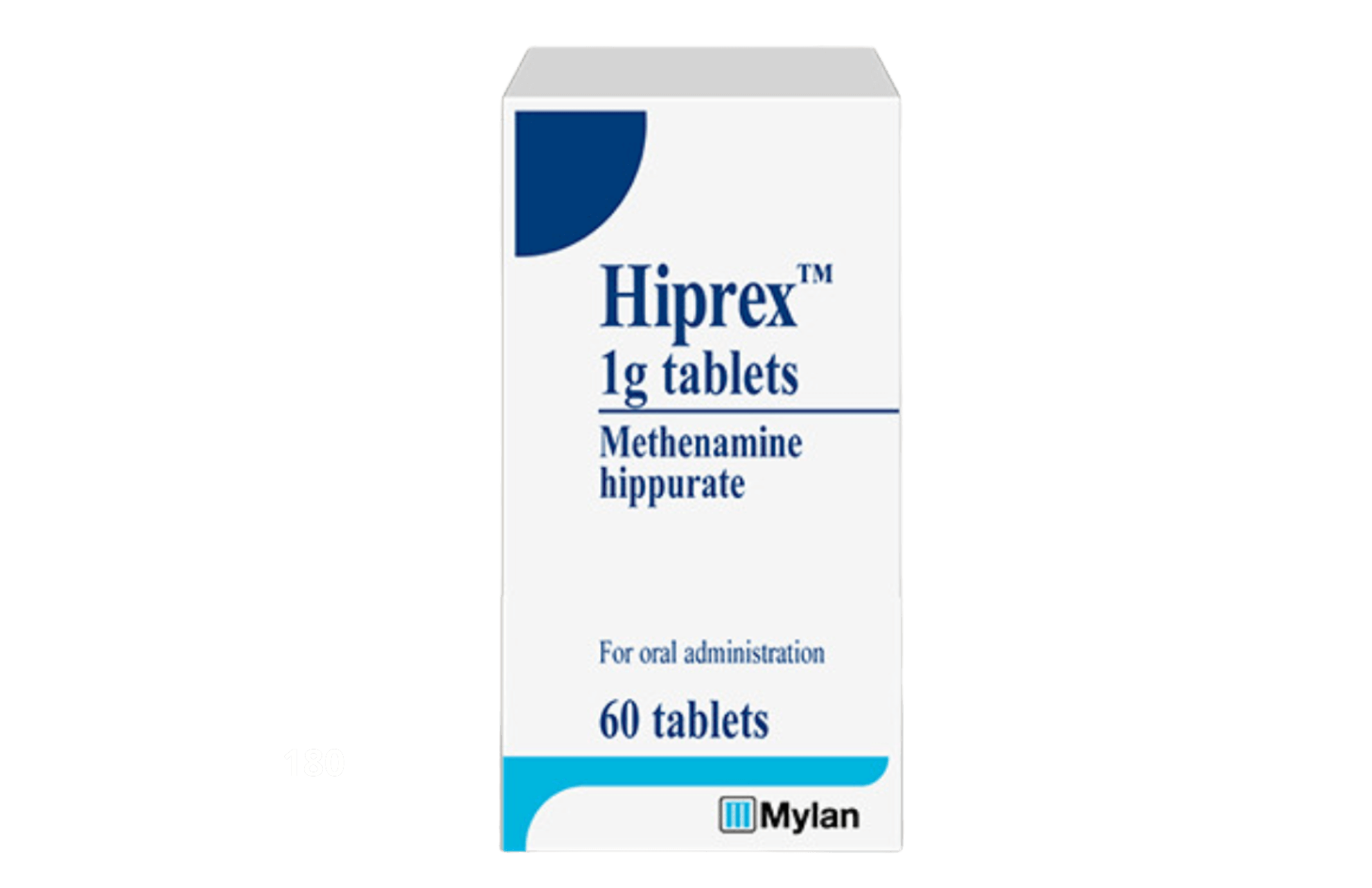Hiprex (
generic name: methenamine hippurate) is an antibacterial medication primarily used to prevent and suppress
urinary tract infections (
UTIs), especially for people who require long-term therapy. It is not meant to treat active infections, but serves as a prophylactic agent to
reduce the recurrence of UTIs.
Methenamine hippurate belongs to the
urinary antiseptic class of medications. When taken, it is absorbed in the gut and excreted in the urine, where it decomposes in acidic conditions to release formaldehyde, a potent antiseptic that exerts antibacterial effects. This means it
does not contribute to antibiotic resistance, making it a better option for long-term UTI prevention.
Dosage
Take Hiplex exactly as prescribed by the doctor and follow the instructions printed on the label. Read the Patient Information leaflet that comes with the pack. The tablets
can be taken with or without food and may be crushed and mixed with milk or fruit juice if swallowing is difficult.
The usual dose for adults is a single tablet (1 gram) twice daily, taken in the morning and evening. For younger patients (6 to 12 years,) the recommended dose is 0.5 to 1 gram twice daily.
Children under 6 years of age should not use Hiprex.
For patients with indwelling catheters, the dosage may be increased to one tablet three times daily.
Storage
Hiprex should be stored in its original carton to protect it from moisture and light. Keep the bottle between 15-30°C (59-86°F), with the lid tightly closed.
Common questions about Hiprex
Is antiseptic better than antibiotic for UTI?
Antibiotics and antiseptics play different roles in treatment of UTIs. Antibiotics are only needed to
stop current infections when they occur. Antiseptics like Hiprex are long-term treatments to
prevent UTIs from occurring, and are especially nedeed for people who are more likely to develop a UTI.
What is the hardest UTI to treat?
In general, women are more prone to UTIs but it is easier to treat them, and asntiseptics like Hiprex work better in women that men. Penile UTIs in men are more difficult to treat, and may require longer courses of antibiotics. Bacteria that causes these infections may stay lodged inside tissues the prostate gland, where they will not be reached by an antiseptic.
This text is for informational purposes only. Please consult a doctor or pharmacist before using any medication.
Read the information leaflet that comes with the medication.
If a sudden allergic reaction (anaphylaxis) occurs after taking Hiprex, with symptoms like swelling of the face, tongue, or throat making it difficult to breathe or swallow, or there is wheezing, hives, rash, blistering, or peeling of the skin, call a doctor or 911 right away, or go to an emergency room immediately.
Most people who use Hiprex do not experience any adverse side effects. Doctors prescribe this medication because they assess the benefits of such treatment outweigh any likely unwanted effects.
Some of the side effects that have been reported include:
- Nausea and vomiting
- Upset stomach or abdominal pain
- Rash or itching
- Bladder irritation, presenting as a burning sensation or pain during urination
Not all side effects are listed here. If these or other unlisted symptoms persist or worsen, consult a healthcare provider or pharmacist.
Common symptoms of urinary tract infections include a strong, persistent urge to urinate, a burning sensation during urination, cloudy or strong-smelling urine, and pelvic pain. In some cases, especially in older adults, UTIs may present with atypical symptoms such as confusion or agitation.
Urinary tract infections occur when bacteria infect the lower urinary tract. Common symptoms include frequent urination, a sudden urge to urinate, burning or pain while urinating, and discomfort in the lower abdomen. It is far more common in women than men, and people grow more succeptible as they age.
Hiprex is prescribed only to prevent recurrent bouts of UTIs when long-term therapy is deemed necessary. It is particularly useful in patients with catheters or undergoing urological procedures. The medication should only be used once a bout of active UTI has been cured by treatment with appropriate antimicrobial medicines.










